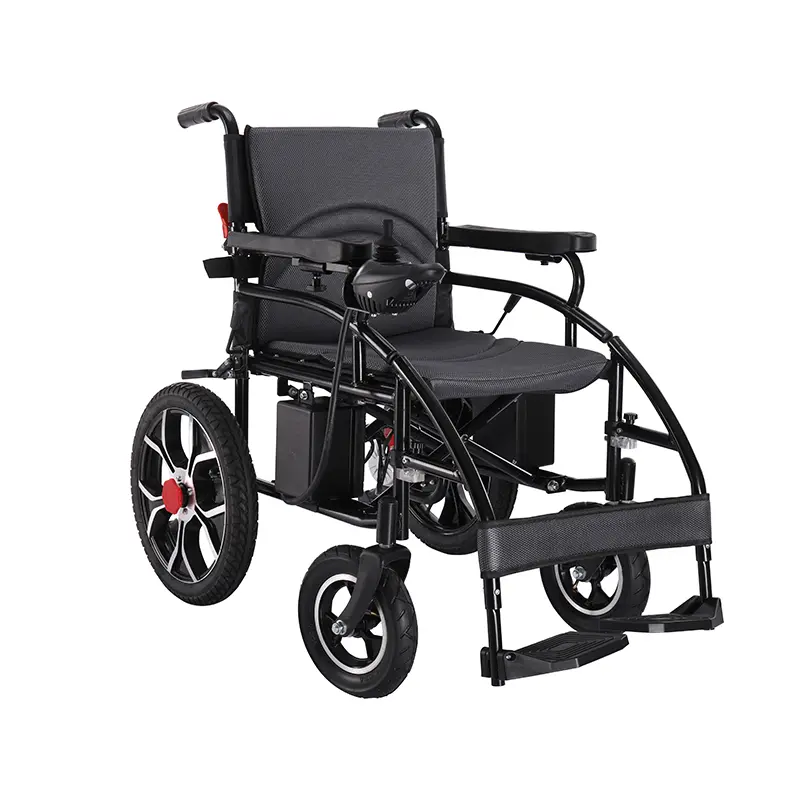Full analysis of policy support for the German electric wheelchair market: helping industry development and market expansion
In today’s globalized business environment, the electric wheelchair market is experiencing rapid growth and change. As one of the largest economies in Europe, Germany is not only a leader in technological innovation and manufacturing, but also promotes the development of the electric wheelchair industry through a series of policy supports. This article will explore the policy support system of the German electric wheelchair market in depth, analyze how these policies provide opportunities for international wholesale buyers and promote the sustainable development of the entire industry.
1. Policy background of the German electric wheelchair market
The German electric wheelchair market is affected by a variety of policies that aim to ensure product quality, promote technological innovation, promote fair competition in the market, and support the well-being of people with disabilities and the elderly. The German government ensures that electric wheelchair products sold on the market meet safety, environmental protection and health requirements by formulating strict regulations and standards. At the same time, Germany actively participates in policy formulation at the EU level, promotes unified market rules and standards, and creates convenient conditions for the circulation and trade of electric wheelchair products.
2. Policy support system for the German electric wheelchair industry
(I) Product certification and standards
Germany implements a strict certification system for electric wheelchair products, mainly based on the EU’s Medical Device Regulation (MDR) and CE certification requirements. CE certification is a mandatory certification for electric wheelchairs to enter the German and EU markets, covering multiple aspects such as product safety, performance and environmental protection. For electric wheelchairs, CE certification requires companies to submit detailed technical documents, including product design, manufacturing process, quality control and clinical evaluation. Products that pass CE certification will obtain legal sales rights in the German market and can be freely circulated in other EU member states.
(II) Trade policy
Germany’s trade policy provides clear guidance for the import and export of electric wheelchairs. German customs conducts strict inspection and supervision on imported electric wheelchairs to ensure that the products comply with relevant German and EU regulations. For electric wheelchair products that meet the requirements, Germany provides a relatively stable tariff policy to reduce the trade costs of enterprises. In addition, Germany has further expanded the market space for electric wheelchairs through free trade agreements with other countries and regions.
(III) Tax and subsidy policies
The German government has implemented a series of tax incentives to encourage the development of the electric wheelchair industry. For example, Germany provides tax breaks and R&D subsidies for companies engaged in the research and development and production of electric wheelchairs. These policies are aimed at reducing the operating costs of enterprises and improving their innovation capabilities and market competitiveness. In addition, Germany also provides certain subsidies to disabled people and the elderly who purchase electric wheelchairs to reduce their financial burden.
(IV) Industry supervision and support
Germany’s industry regulators strictly supervise the electric wheelchair market to ensure fair competition in the market and protection of consumer rights. Germany’s industry associations and organizations have also played an important role in promoting industry self-discipline and standard setting. These institutions have promoted exchanges and cooperation between enterprises by holding exhibitions, seminars and training activities. At the same time, the German government has also promoted technological progress in the electric wheelchair industry by supporting R&D projects and innovation programs.
3. Policy impact on the German electric wheelchair market
(I) Promoting technological innovation
Germany’s policy support provides a strong guarantee for technological innovation in the electric wheelchair industry. Strict certification standards and regulatory requirements have prompted companies to continuously invest in R&D to improve product safety and performance. For example, some German companies are developing smart electric wheelchairs that provide users with a more convenient and comfortable use experience by integrating advanced sensors and control systems. In addition, the German government’s support for R&D has also provided companies with financial and technical resources, accelerating the development and application of new technologies.
(II) Guaranteeing product quality
By implementing strict CE certification and quality supervision measures, Germany ensures that electric wheelchair products sold on the market meet high quality standards. This not only ensures the safety of consumers’ use, but also improves the reputation of German electric wheelchairs in the international market. German consumers have high requirements for product quality and safety, and a strict policy system provides consumers with confidence.
(III) Promoting fair competition in the market
Germany’s trade policies and industry regulatory measures have created a good environment for fair competition in the electric wheelchair market. By cracking down on counterfeit and shoddy products and unfair competition, Germany protects the rights and interests of legitimate enterprises. At the same time, Germany’s tax incentives and subsidy measures also provide development opportunities for small and medium-sized enterprises and promote market diversification and vitality.
(IV) Supporting the welfare of people with disabilities and the elderly
Germany’s policy support not only focuses on the development of the electric wheelchair industry, but also strives to improve the quality of life of people with disabilities and the elderly. By providing purchase subsidies and support for the construction of barrier-free facilities, the German government helps people with disabilities and the elderly better integrate into society. This not only reflects Germany’s sense of social responsibility, but also creates stable consumer demand for the electric wheelchair market.
Post time: Jul-09-2025


